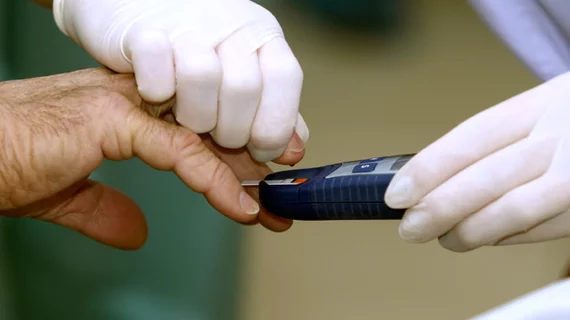Patients who have type 1 or type 2 diabetes and atrial fibrillation (AFib) are less likely to notice symptoms related to an irregular heartbeat, according to new data published in the Journal of the American Heart Association.
A diminished quality of life and coexisting health conditions are also more common among this patient population, the authors noted.
“Since diabetes is one of the major risk factors for AFib, our team investigated whether patients with and without diabetes differ in terms of AFib symptoms and complications,” study co-author Tobias Reichlin, MD, professor of cardiology the University of Bern in Bern in Switzerland, said in a prepared statement. “This research can provide insights on improving the management of AFib and prevention of its complications.”
The group examined data from 2,411 AFib patients enrolled in the Swiss-AF study who were originally enrolled between 2014 and 2017. Seventy-three percent were men, and the median age was 74 years old.
All patients underwent a clinical examination, blood sampling, cognitive assessment, quality of life assessment and five -minute resting electrocardiogram. Nearly 17% of patients were diagnosed with diabetes.
Overall, the authors found that patients with diabetes were about 25% less likely than those without diabetes to recognize common symptoms of AFib such as a rapid heartbeat. They were also three times more likely to have high blood pressure, 55% more likely to have had an MI and approximately twice as likely to have heart failure.
Also, patients with diabetes had a 39% increased stroke risk and were 75% more inclined to have cognitive impairment.
“It is remarkable to find that patients with diabetes had a reduced recognition of AFib symptoms,” Reichlin added. “The reduced perception of AFib symptoms may result in a delayed diagnosis of atrial fibrillation, and, consequently, more complications such as stroke. Our findings raise the question of whether patients with diabetes should be routinely screened for AFib.”
Furthermore, when evaluating quality-of-life issues, researchers found that having diabetes and AFib adversely impacted mobility and self-care.
“Keeping these new observations in mind, along with the serious consequences of failing to recognize AFib in time, it seems prudent to consider screening older patients with diabetes for AFib so that treatment may be initiated when appropriate,” Prakash Deedwania, MD, immediate past chair of the American Heart Association Diabetes Committee and a professor of medicine at the University of California, San Francisco School of Medicine, said in the same statement.
Read the full study here.
